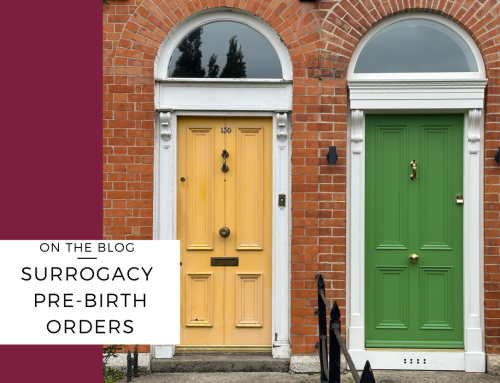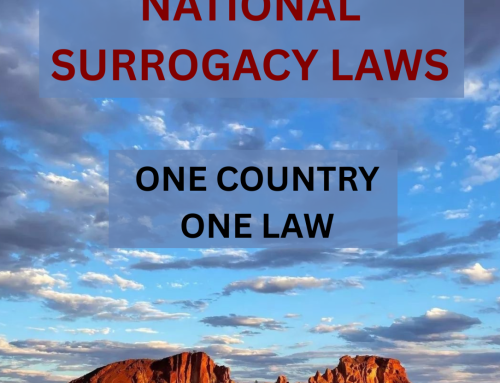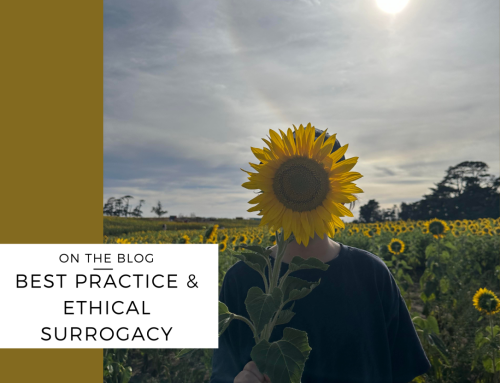Gestational surrogacy, in which the surrogate is not the genetic mother of the baby she is carrying, is the most common form of surrogacy both in Australia and overseas. Gestational surrogacy is different from Traditional Surrogacy, where the surrogate conceives with her own egg and is therefore the genetic mother of the child, as well as being the birth mother.
If you are new to surrogacy, you can read about how to find a surrogate, or how to become a surrogate yourself. You can also download the free Surrogacy Handbook which explains the processes and options.
Sarah has written a comprehensive surrogacy guide, More Than Just a Baby: A Guide to Surrogacy for Intended Parents and Surrogates, which you can purchase in digital or hard copy.
Gestational surrogacy is more common now due to the advances and availability of fertility treatments, which allow the intended parents to create embryos with eggs from the intended mother or an egg donor. Most surrogates are only comfortable with gestational surrogacy as they do not wish to have a genetic connection with the baby they are carrying.
If you are considering surrogacy as an option to grow your family, you need to make sure you qualify for surrogacy in Australia. Generally speaking, you need to have a medical or social need for surrogacy, meaning that neither you or your partner can conceive or carry a child. Infertility, whilst challenging, is not of itself a qualifier for surrogacy. If you or your partner have a uterus, you will need to seek medical approval before pursuing surrogacy. You may need to consider donor eggs or sperm if there are other fertility problems.
Surrogacy arrangements are regulated by the state surrogacy laws, based on the state where the intended parents live. Surrogacy arrangements follow the same process regardless of the state – each team must have pre-surrogacy counselling and legal advice.
If you need an egg donor, you might consider Egg Donation Australia, which involves an altruistic donor from within Australia. This is cheaper and important for the child’s interests, as the donor’s details will be recorded for the child to access when they reach 18 years of age. Eggs from an anonymous donor from overseas can be expensive, and lack the accessible information that your child is entitled to. Read more about egg donation in Australia.
As gestational surrogacy involves eggs from someone other than the surrogate, it necessarily involves IVF treatment. The donor or intended mother undergoes an IVF treatment cycle, and embryos are created with an intended father or sperm donor. The surrogate will then be prepared for an embryo transfer, which may involve hormone treatment to prepare her body and cycle to be pregnant. The specific medication protocol will depend on the specialist and the surrogate, and is worth asking about at the clinic. Many surrogates prefer to do a ‘natural’ cycle, which does not include medication but works with her natural ovulation cycle. There are reasons for natural or medicated cycles, and surrogates and intended parents should speak to their specialist about the best option.
Gestational surrogacy is generally more expensive than traditional surrogacy, as it requires the use of IVF. However, it has the benefit of giving an intended mother the opportunity of sharing genetics with the baby, and also allows for genetic testing of embryos which can increase the chances of conception.
If you are looking for a surrogate, you can find information about the steps involved in this post. If you are interested in becoming a surrogate yourself, you can read more about that here.
Want to know more about surrogacy options in Australia? Don’t forget to the download the Surrogacy Handbook, listen to the Surrogacy Podcast and book in for a consult with Sarah below.








